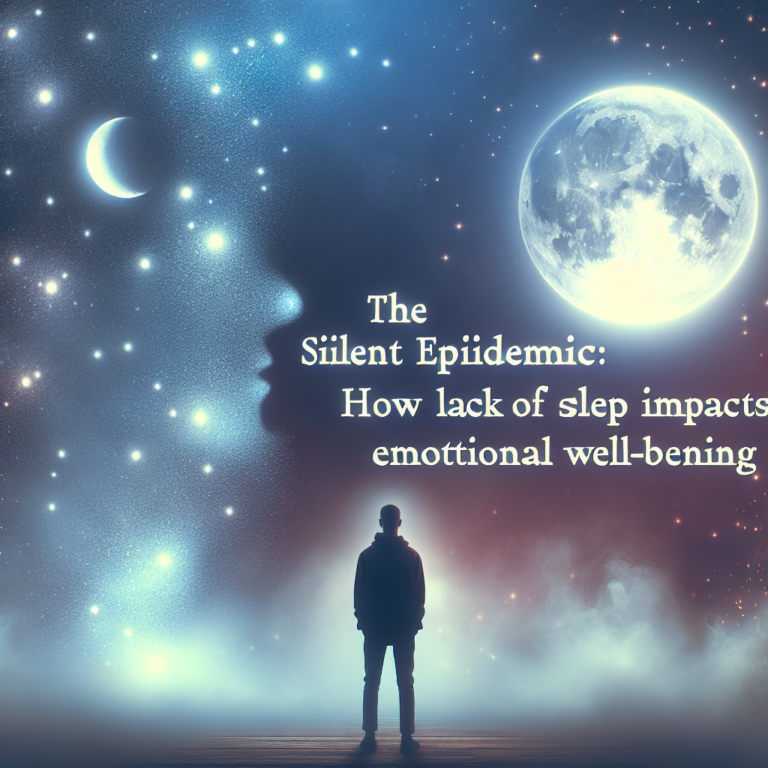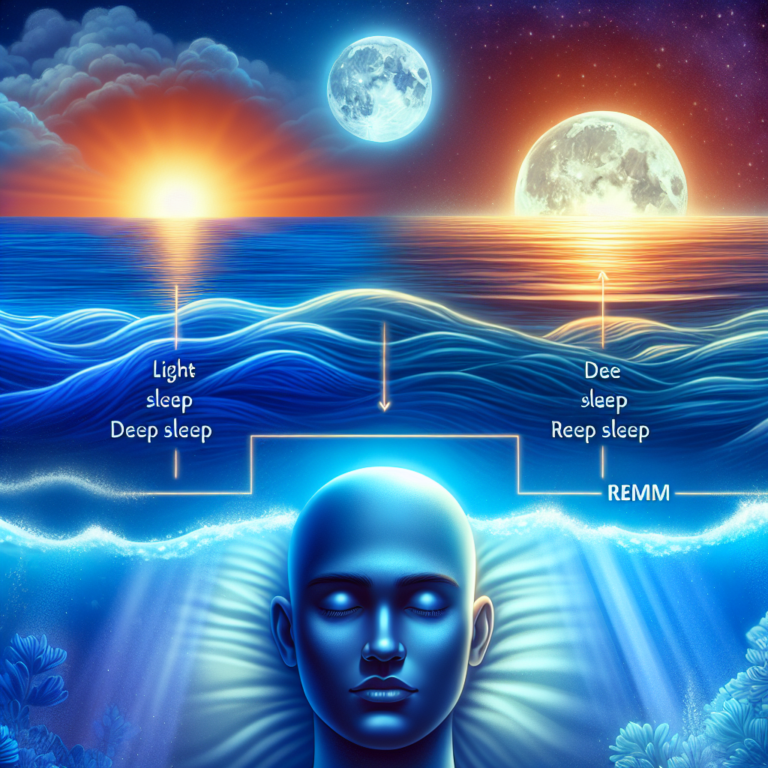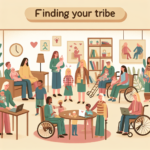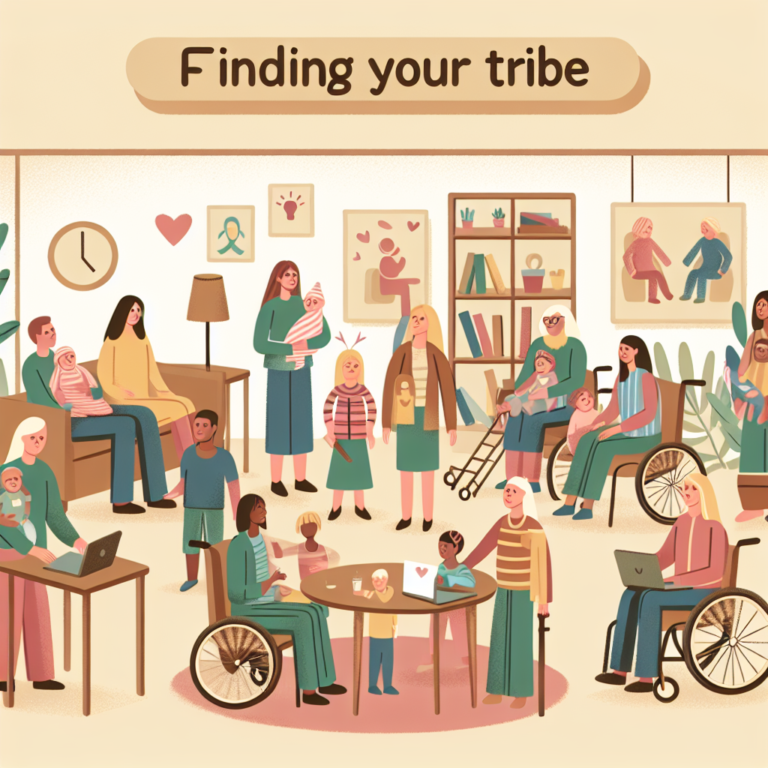
Unlocking the Mystery of Sleep: A Deep Dive into the Stages of Sleep Cycles
Sleep is a universal experience, yet it remains one of the most intriguing mysteries of human life. Often taken for granted, sleep is not merely a period of rest; it’s a complex process that plays a critical role in our physical, mental, and emotional well-being. So, how do we unlock the mystery of sleep? In this comprehensive article, Unlocking the Mystery of Sleep: A Deep Dive into the Stages of Sleep Cycles, we will explore the various stages of sleep, their significance, and how they impact our daily lives.
The Importance of Sleep: More Than Just Rest
To understand the stages of sleep, we first need to appreciate why sleep is essential. Sleep affects almost every aspect of our health. It influences our cognitive functioning, emotional well-being, immune system, and even our ability to maintain a healthy weight. Research indicates that insufficient or poor-quality sleep can lead to various chronic conditions, including obesity, diabetes, and heart disease.
The Science of Sleep
Sleep consists of multiple cycles, which include different stages characterized by unique brain wave patterns and physiological processes. Traditionally, sleep was divided into two main types: Non-Rapid Eye Movement (NREM) and Rapid Eye Movement (REM) sleep.
NREM Sleep is further divided into three stages:
- Stage 1: Light sleep
- Stage 2: Intermediate sleep
- Stage 3: Deep sleep (also known as slow-wave sleep)
- REM Sleep occurs approximately 90 minutes after falling asleep and is when most dreaming takes place.
Understanding these stages is pivotal to unlocking the mystery of sleep and reaping its benefits.
The Sleep Cycle: How It Works
Each complete sleep cycle lasts about 90-120 minutes and consists of NREM and REM stages.
The Phases of Sleep
- Stage 1: Light Sleep
- This is the transition from wakefulness to sleep. It lasts for just a few minutes and is marked by a slowdown in brain activity.
- Case Study: A study published in the journal Sleep confirmed that people who spent more time in light sleep often reported feeling more refreshed upon waking, suggesting its importance in the sleep cycle.
| Stage | Duration | Characteristics |
|---|---|---|
| 1 | 5-10 mins | Transition into sleep, easily awakenable |
Stage 2: Intermediate Sleep
- Lasting between 10 to 25 minutes, this stage is where the body prepares for deep sleep. Heart rate slows, body temperature drops, and brain waves begin to exhibit sleep spindles.
- Case Study: Researchers found that individuals with a higher proportion of time spent in Stage 2 sleep reported enhanced memory retention, crucial for learning new information.
- Stage 3: Deep Sleep
- Sometimes referred to as slow-wave sleep, this phase is vital for physical recovery and growth. Sleepwalking and night terrors occur during this stage.
- Case Study: According to a study in The Journal of Clinical Investigation, individuals deprived of deep sleep showed increased inflammation markers in their blood, underscoring the importance of this stage for physical health.
| Stage | Duration | Characteristics |
|---|---|---|
| 2 | 20-30 mins | Blood pressure drops, temperature regulation |
| 3 | 20-40 mins | Deepest sleep; hard to wake up |
- REM Sleep
- The brain becomes more active, resembling wakefulness, while most muscles are paralyzed. It plays a crucial role in emotional regulation and memory consolidation.
- Case Study: A groundbreaking study in Nature Neuroscience revealed that REM sleep aids in emotional memory processing, helping individuals regulate their emotional responses.
| Stage | Duration | Characteristics |
|---|---|---|
| REM | 10-20 mins | Dreaming occurs, memory consolidation |
The Impact of Lifestyle Choices on Sleep Cycles
Several lifestyle choices can significantly influence the quality of your sleep cycles.
1. Stress Management
- High levels of stress can disrupt sleep architecture, reducing time spent in deep sleep and REM stages. Techniques such as mindfulness and meditation can mitigate stress and enhance sleep quality.
2. Nutrition
- What we eat plays a pivotal role in how well we sleep. Consuming heavy meals close to bedtime, caffeine, and alcohol can interfere with sleep cycles. Foods rich in antioxidants and omega-3 fatty acids can promote better sleep.
3. Sleep Hygiene
- Establishing a sleep-conducive environment—cool, dark, and quiet—can enhance sleep quality. A regular sleep schedule reinforces the body’s natural circadian rhythms.
4. Exercise
- Regular physical activity is associated with deeper sleep, but timing matters. Exercising too close to bedtime may have a stimulating effect, leading to difficulties falling asleep.
| Lifestyle Factor | Impact on Sleep Quality |
|---|---|
| Stress | Negatively affects all stages of sleep |
| Nutrition | Can enhance or impair sleep cycles |
| Sleep Hygiene | Direct correlation with overall sleep quality |
| Exercise | Generally promotes better sleep, timing is key |
Unlocking the Mystery of Sleep: Debunking Myths
Many myths surround the topic of sleep. A few common misconceptions include:
Myth: Everyone needs 8 hours of sleep.
- Fact: Sleep needs vary by individual; some may function optimally with less than 6 hours, while others may need more than 9.
Myth: You can "catch up" on lost sleep.
- Fact: Regularly staying up late or sleeping in can disrupt your circadian rhythm, leading to poor sleep quality despite longer hours.
Myth: Alcohol helps with sleep.
- Fact: While alcohol may help you doze off, it reduces REM sleep and leads to poorer quality sleep overall.
Myth: Snoring is normal and harmless.
- Fact: Chronic snoring can be a sign of sleep apnea, a serious condition that requires medical attention.
- Myth: Napping is an indicator of poor nighttime sleep.
- Fact: Napping can be a healthy addition to your sleep routine if it doesn’t interfere with nighttime sleep quality.
Actionable Insights for Better Sleep
Enhancing your sleep is not just about quantity but also quality. Here are some actionable insights:
- Create a Bedtime Ritual: Establish calming pre-sleep activities like reading or gentle yoga.
- Limit Screen Time: Reduce exposure to screens an hour before bed to decrease blue light exposure that disrupts melatonin production.
- Monitor Sleep: Keep a sleep journal or use a sleep-tracking app to identify patterns and areas needing improvement.
- Prioritize Sleep: Make sleep a non-negotiable part of your health regimen. Prioritizing your sleep can lead to significant improvements in other areas of life.
Conclusion: The Journey Toward Better Sleep
Understanding sleep cycles is crucial to unlocking the mystery of sleep. By embracing healthy lifestyle choices, dispelling myths, and prioritizing sleep hygiene, individuals can achieve deeper, restorative sleep. This ultimately leads to better overall health, enhanced cognitive function, and improved emotional well-being.
You hold the keys to nurturing your sleep cycles. By implementing the principles discussed in this article, you not only unlock better sleep but also unlock a more vibrant and energetic life.
Frequently Asked Questions (FAQs)
How can I improve my sleep quality?
- Focus on establishing a bedtime routine, optimizing your sleep environment, and managing stress effectively.
What are the consequences of sleep deprivation?
- Sleep deprivation can lead to cognitive impairments, hormonal imbalances, poorer immune response, and increased risk of chronic conditions.
Is it normal to wake up during the night?
- Waking up briefly during the night is common; however, frequent awakenings can indicate an underlying issue that might need addressing.
Do age and gender affect sleep patterns?
- Yes, age and hormonal changes can influence sleep patterns significantly. For instance, older adults may experience lighter sleep and more frequent awakenings.
- Can supplements help with sleep?
- Certain supplements, like melatonin, can enhance sleep quality. However, consult with a healthcare provider before starting any new supplement.
Exploring and implementing the recommendations in Unlocking the Mystery of Sleep: A Deep Dive into the Stages of Sleep Cycles may provide the key to a better night’s rest, leading to a healthier and more fulfilling life.

















